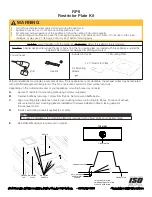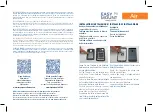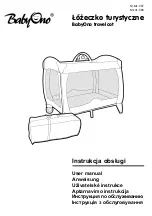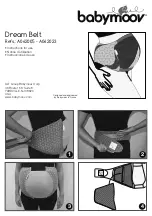
Chapter 5 - Networking Modes and System Configurations
Confidential and Proprietary Information of ZTE CORPORATION
77
and coaxial cables. Satellite links can be used for special transmission
modes.
System Configuration
There are many ways of BS configuration. In general, a proper number
and types of sites are selected to cater for the requirements of the
operators as well as the concrete geographical environment, and a
minimum hardware configuration should be used to meet the maximum
traffic requirement.
Number and Types of Sites
A radio cellular mobile network, according to its frequency resources and
cell planning, can be divided into a certain number of cells. The cells in a
cellular system are adjacent to each other, as shown in Figure 69.
F
I G U R E
6 9
S
C H E M A T I C
D
I A G R A M O F
C
E L L S
Cell1
Cell3
Cell4
Cell2
Cell5
Cell6
Cell7
Cell9
Cell8
A
B
In the system, each cellular cell is covered by multiple radio channels. If
an omni-antenna is employed, a base station will be set at the center of
each cell (as A in the diagram). And if a directional sectorized antenna is
used, the base station will be established at the intersection of three cells
(as B in the diagram). Such a base station covers three adjacent cells, and
in fact it contains at least three TRXs. Usually, a base station in this kind
of network is called a site. The base site with an omni-antenna covers only
one cell; while the base site with a directional antenna covers three cells.
Types of sites: O-type sites and S-type sites, and the models are shown in
Figure 70.
An O-type site is an omni-directional cell, that is, all the carriers of the
site serve the O-type cell;
Summary of Contents for ZXG10 OB06
Page 2: ......
Page 4: ......
Page 6: ......
Page 10: ......
Page 88: ...74 Confidential and Proprietary Information of ZTE CORPORATION ...
















































